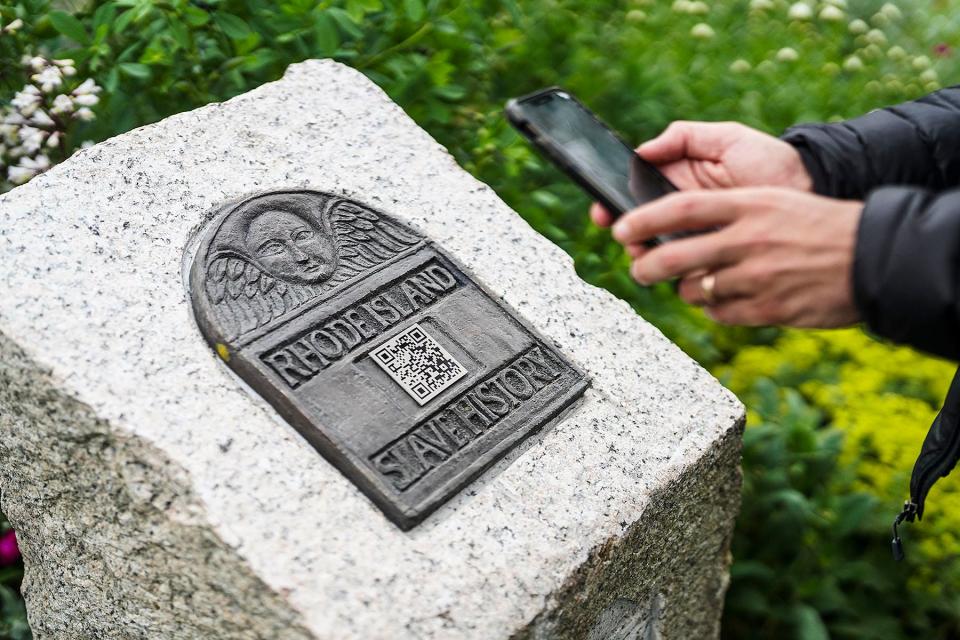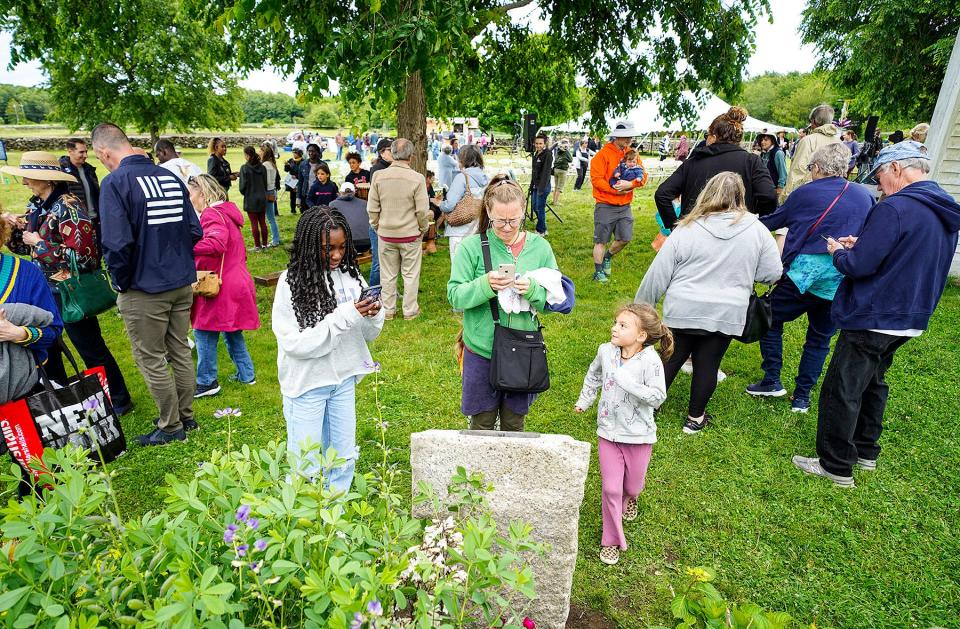On Juneteenth, North Kingstown's historic Casey Farm marks its ties to slavery
NORTH KINGSTOWN – The story of Casey Farm can’t be told without talking about slavery.
Like other 18th-century farms in southern Rhode Island, its ties to slave labor run deep.
On Sunday, Juneteenth, the federal holiday that recognizes the end of slavery in America, the farm marked its complex history with the unveiling of a Rhode Island Slave History Medallion.
As the only working farm in South County that survives intact from its era, it was of particular importance to acknowledge the work of enslaved people of African descent and indigenous Americans.
“We’re building a map of remembrance here,” said Charles Roberts, founder and executive director of Rhode Island Slave History Medallions.
Jamestown: Once in the business of selling slaves, Jamestown Town Council will 'acknowledge a wrong'

The picturesque farm, with 300 acres stretching from Narragansett Bay to the Pettaquamscutt River, is the seventh place in Rhode Island to install one of the bronze medallions meant to raise awareness of the state’s role in the slave economy. Other locations that are part of the five-year-old program include Bowen’s Wharf in Newport, which was a stop in the slave trade, and Linden Place in Bristol, a mansion owned by a slave-trading family.
The sprawling Casey farm in North Kingstown was acquired by an ancestor of the family in 1702 and remained in the family's hands until 1955 when the nonprofit Historic New England took over. The land is still in use today as an organic farm with its own community-supported agriculture program.
It was the staff there that pushed for the installation of the granite marker with a tell-tale medallion that was unveiled on Sunday. They knew that given the era in which it operated, the farm would have made use of slave labor. Because of Rhode Island’s active role in the Atlantic and West Indian slave trades, thousands of enslaved people were put to work on the state’s farms.
Freedom Day: Celebrating Juneteenth this year around New England

Historians have found records of 15 enslaved people that were owned by the Casey family.
“We’re telling the stories of the slaves that lived here and worked here,” said Roberts. “They’re the untold stories.”
They’re stories that are still relevant today and inform policy decisions to support minority businesses or to advance education in urban communities, said Gov. Dan McKee as he talked with Roberts before the unveiling ceremony.
“We have to understand history in order to create the policies to move things in a direction where we can provide opportunities,” McKee said. “There are unlevel playing fields, and a lot of it is due to the fact that the history as it is has brought us to this point. Now we have to move past that.”
Rhode Island and the slave trade: Buying and selling human beings
He spoke in the ceremony that followed, as did U.S. Senators Jack Reed and Sheldon Whitehouse and Loren Spears, executive director of the Tomaquag Museum.
“Slavery was not just a terrible injustice perpetrated by Southern plantation owners,” said Reed. “It happened right here, in our own Rhode Island.”
The records of those who worked at Casey Farm are spotty and incomplete, so it’s difficult to put a concrete number on the enslaved people associated with the property, said Hannah Francis, research scholar with Historic New England.
She read out the names of some of the 15 people for which she and others have found records, acknowledging their “humanity and contributions to the history of Casey Farm.”
“Although we know of 15 people, the number is likely much higher,” she said.
This article originally appeared on The Providence Journal: Juneteenth, historic Casey Farm Rhode Island Slave History Medallion

